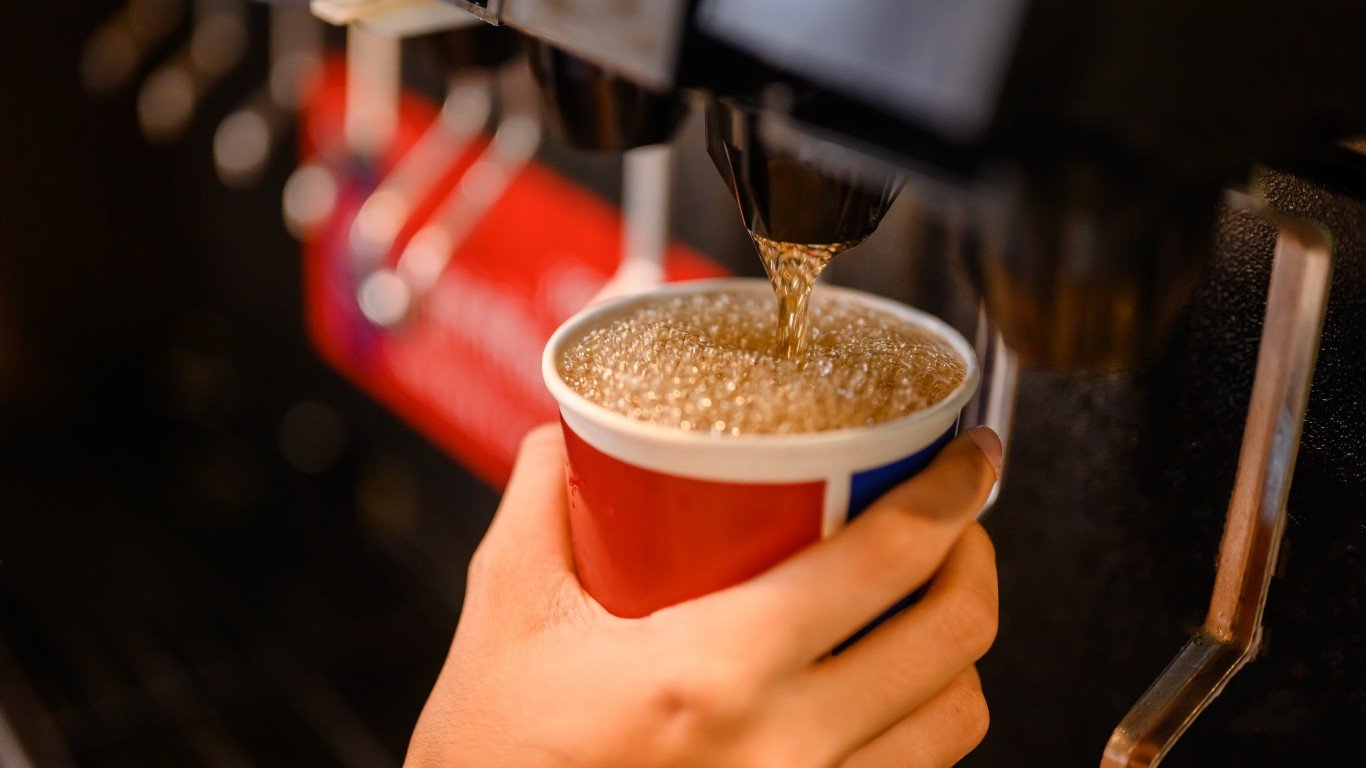Children who drink caffeinated beverages start drinking alcohol sooner than their peers, according to a study published on Nov. 7 in the Taylor & Francis journal “Substance Use & Misuse.”
The study, co-authored by six researchers associated with the Department of Psychology at the University of Seoul in Korea and two others from Virginia universities, is entitled “Caffeinated Soda Intake in Children Is Associated with Neurobehavioral Risk Factors for Substance Misuse.” Its stated purpose was to determine whether frequent consumption of caffeinated soda “is associated with a higher risk of subsequent alcohol initiation” – and its findings said yes.
Some 2,092 children aged 9 to 10, recruited from school systems in various parts of the U.S., were included in the study. They were asked how many cans of Mountain Dew, Jolt, Coke, Pepsi, Dr. Pepper, and/or Barq’s root beer they had consumed per week in the previous six months. (Whatever your age, here are 10 reasons you should stop drinking diet soda.)
Using data from a 2017 study called “Adolescent Brain Cognitive Development,” the researchers first attempted to determine whether there was a link between consumption of these drinks and typical risk factors for future substance abuse like impaired working memory and high impulsivity, and found that the practice correlated with lower memory performance and higher impulsivity scores.
Then the study focused on whether caffeinated soda intake was predictive of “alcohol sipping” after 12 months. The incidence of sipping, as self-reported by participants, led to the discovery that “caffeinated soda intake predicted a 2.04 times greater likelihood of alcohol sipping after 12 months.”
Why should this be true? There are two competing but not mutually exclusive possible explanations. The gateway hypothesis suggests that exposure to one drug (caffeine in this instance) induces an effect on the brain which renders an individual more susceptible to stronger drugs (like alcohol). The common liability hypothesis is the theory that those who have problems with impulse control are more likely to try relatively mild drugs like caffeine at an early age but then transition to stronger substances as they get older and it becomes easier to obtain them.
The authors of the study conclude that their work “suggests a strong need to develop evidence-based recommendations for caffeinated soda consumption in minors…as there is no consensus on a safe dose of caffeinated soda in children, and some children are at higher risk of adverse events from frequent caffeinated soda intake.” Here is a list of 20 foods and drinks you only think are healthy.
